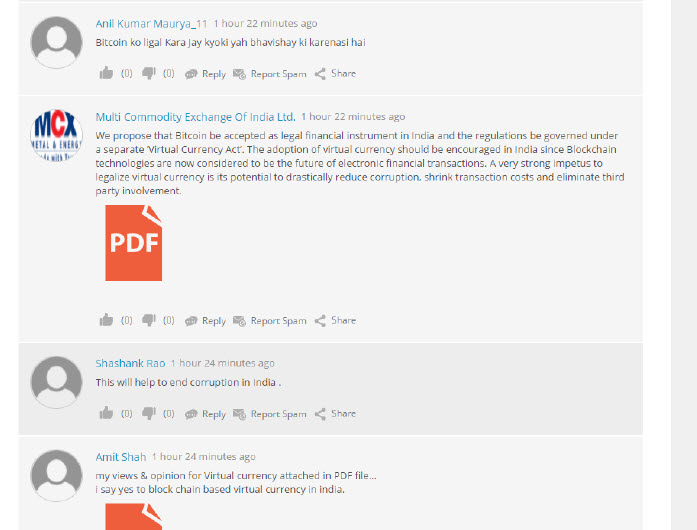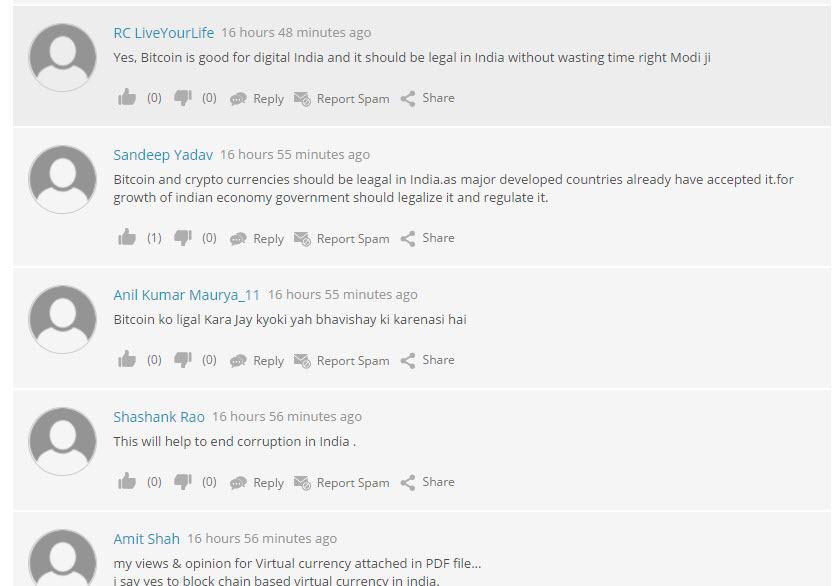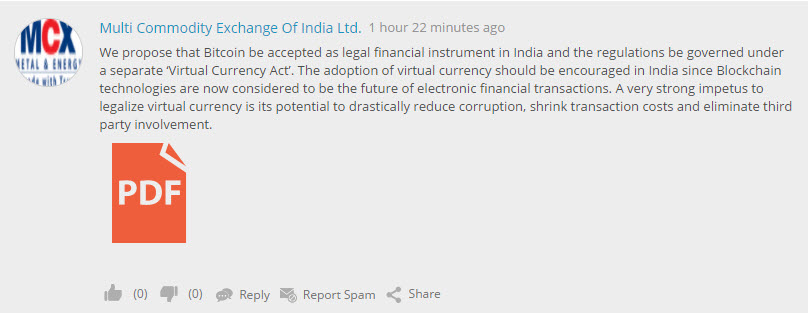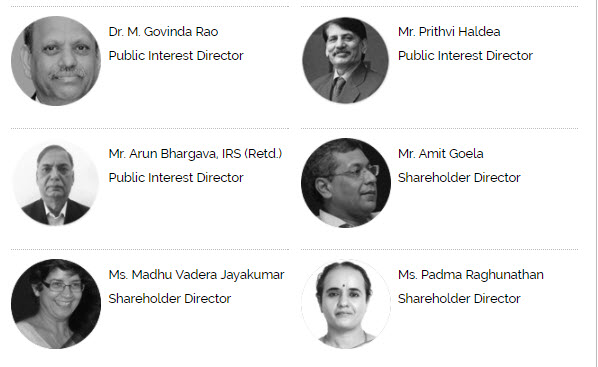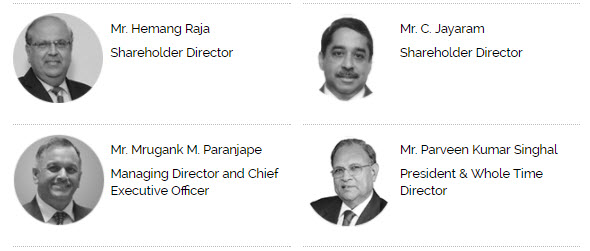
Fight against Corruption in India now has a new Slogan… Say NO to Bitcoins ..Every time… Even the first time.
Whatever we say for Bitcoins also applies to all private Crypto Currencies which are outside the purview of the currency regulators of the nation states such as RBI for India.
Why do we say that Bitcoin is connected with “Fight Against Corruption”?.
Many people may think that “Anything Virtual is Good” and Bitcoin is a Virtual Currency and hence it should be good. They argue that Modi supports Digital India and hence he should support Bitcoins.
Some people think India needs to do what other countries do because we donot understand things as much as others and since countries like Japan have recognized Bitcoins, we need to follow. They forget that India under Modi is a “Global Leader” and not “A follower”.
Bitcoins is not like the Digital Wallets which we in India are familiar. We transfer money from our Bank account to a Mobile Wallet account such as PayTM or Phone Pay or Pay U or Ola Money and other wallets. Money remains in the wallet and can be used for spending on many websites, for phone recharge etc. If your vegetable vendor accepts PayTm, you can use the money in your PayTm wallet for buying vegetables on the street also. This is convenient and despite some Cyber Security risks, the system is well within the control of the RBI which knows how much money is flowing through the country in the form of “Currency”.
In the case of Bitcoins, they are generated by private persons. Generation of new Bitcoins is called “Mining”. It is created through a computer operation for which software can be downloaded freely. But at present, creation of Bitcoins has reached such levels of difficulty that no Individual can individually process the creation of Bitcoins. It is being created (or mined) by “Mining Pools” which is a congregation of computers like a “Botnet” all of which are trying to process a common problem and if they are successful, every new “Block” will create new Bitcoins roughly at the rate of 1 Bitcoin per minute across the globe. The difficulty level will keep on increasing and the reward will keep on coming down.
Most Bitcoins in visibility today are “Bought” in exchanges. Some sell the earlier bought Bitcoins through the same Exchanges. The trading is not regulated and anybody can start a website and become an exchange. The Exchanges operating in India are low level technology platforms which will simply try to identify a seller at a particular price and buyers who are willing to buy at a specific price and try to match the bids and offers. A few will offer a jobber’s spread undertaking to buy and sell simultaneously through a spread which can be around Rs 10000 to 12000 per Bitcoins.
When a new Bitcoin is created, the Bitcoins are given an identity in the form of a “Hash Value” and is credited to a “Bitcoin Wallet” of the person/pool to which it is created. The Bitcoin wallets are also in the form of a”Hash Value” and the central ledger of Bitcoins will not know who is the owner of the Bitcoin wallet. Hence the holding of Bitcoins becomes anonymous.
If the Bitcoin creator (we shall call him the Miner) has opened a Wallet account with a service provider, he would have shared an email address and his identity is linked to whether the E Mail service provider has conducted any KYC (Know Your Customer). Since no e-mail service provider does a KYC, any body can open an email account in any name and the service provider accepts it as declared. The anonymity therefore continues.
There are also Bitcoin wallet software which can be downloaded to a desktop (If required through the anonymous tor browsers) and Bitcoin wallets can be created from one’s own computer. In that case the anonymity is protected. People also create numerous bitcoin wallets and change it for every transactions like criminals changing their mobile SIMs often.
As a result of this process, Bitcoins largely remain anonymous when created and when tranferred from a wallet to wallet.
When a person trades Bitcoins on the Exchange, then he provides some of his identity particulars to the Exchange. Some of the Indian exchanges are collecting the PAN card numbers though they may not be independently verifying the same and calling it as “KYC”. If you are aware that there have been incidents of people picking up PAN cards of railway passengers from the reservation list and using it for buying and selling jewellery, then you know that merely collecting the PAN card or even Aadhar Card numbers without verification cannot be considered as valid KYC.
Anyway we can expect that some information about the identity of the buyers and sellers in an exchange can be obtained in exchange transactions.
However, when a person buys a bitcoin in the exchange, there is no way to verify if the Bitcoin was originally held by some body who had mined it or he himself had purchased it from another person.
In the case of a Currency note, the currency does shift from hand to hand and some times it goes through criminals and comes out into the hands of honest persons. This process is what we normally refer to as “Money Laundering”.
A Currency is an obligation of the Government that the holder can claim the value mentioned there in from the Government. There was a time when such value could be claimed in the form of Gold because the Government was supposed to have a backing for currency in the form of Gold. Gradually the backing reduced to a small percentage of the total currency issued and today if all currency holders want the Government to convert their value to Gold it may not be possible. If there is a failure of a Government and people think that the country has no capacity to earn, the currency gets devalued by market forces in terms of its exchange value as compared to other foreign currencies. It happens to INR and also to USD or Euro. If the economy of a country is strong the value of the currency remains strong otherwise it becomes weak.
As against Currency there are some instruments which are called “Negotiable Instruments”. (NI) which is backed by a legislation in India called Negotiable Instruments Act (NIA). Currency is not a Negotiable Instrument as it is excluded from NI Act.
In the case of Bitcoins, we say that it is an “Electronic Document” and hence under Section 4 of ITA 2000, it is recognized as much as a paper document. There is an authentication of the Bitcoin by means of a digital signature of the foundation server but the digital certificate is not issued by any Indian licensed Certifying authority.
Hence Bitcoin is like an unauthenticated paper document which makes some statement that” the owner of x bitcoin wallet is the owner of this Bitcoin”. Some people want to ascribe value to this piece of document and others want to accept the value and hence in a limited sense it acquires an ability to be used as a “Currency”.
If for example, Sachin Tendulkar releases an autographed message and says that he will issue only 100 such autographed messages, there would be many who would be willing to buy such an autographed message and also trade it just like currency. Bitcoin is nothing different except the scale at which it is accepted is huge and threatens to destabilize the economy.
Now if we consider that Bitcoin is an “Electronic document with value”, then it can be considered as a “Property” and comes under the provisions of law applicable to transfer of property like an actionable claim or a contractual document.
It is a general principle of law that except Negotiable Instruments, all other properties when they are transferred from one person to another, the transfer is always subject to the defects of the title of the transferor. In other words if the transferor had a defective title the transferee will also get a defective title even though he is an honest person and has paid value to get the property transferred to his name. Hence any buyer of Bitcoin will get only a defective title to the Bitcoin he purchases if it has once gone through the hands of a criminal. Hence all holders of Bitcoins become part of a Money Laundering Chain unless we are sure that we are buying from a known miner or where the chain from the miner to the buyer is all clean.
Since Bitcoin does not have the Government backing any way, RBI thinks that this is not a currency and hence hesitates to step into regulation.
If Bitcoin is considered a commodity, its trading has to come under SEBI regulations. The problem has been that since Bitcoin does not fit the definition of any physical commodity because it is “Virtual”, nor can it be called a “Derivative” of a physical commodity, SEBI does not know whether it should step in and regulate or stay out.
Like the proverbial Hiranya Kashipu who sought a boon that he should not be killed either inside the house or outside, neither in the morning or evening, neither by a human or an animal, Bitcoin is escaping regulation from both RBI and SEBI.
We need to therefore find a Narasimha to take an avatar and kill this demon.
If we donot Kill Bitcoin, then this anonymous currency will be accepted for transactions in the physical world and people will stop using Rupee currency notes and use Bitcoins. RBI will have no count of the transactions and Income Tax will not be able to track the flow of money. As a result people who want to keep their wealth in the form of Black money will be able to convert their current holding of Black currency in the form of Indian currency notes or foreign currency in the form of undisclosed foreign bank accounts into Bitcoins.
Bitcoins will therefore be a boon for Black money holders. Even Havala operators would find it convenient to transfer money from one place to other since they can receive INR in India for transfer buy Bitcoins from the exchanges against cash, then transfer the Bitcoin to the designated foreign country. Transferors of money also can directly purchase Bitcoins and transfer it to the addressee as a Bitcoin and let the addressee convert it into cash.
It is stated that ICICI Bank is transferring money from Gulf to India by accepting Bitcoins in the Gulf. This is an unconfirmed information and I want the Chair person of ICICI Bank to deny if this is untrue.
If therefore, Government of India under some kind of trance legalizes Bitcoins then all the black money in India will get converted into Bitcoins.
In future all bribe receivers will demand that payment has to be made in the form of Bitcoins just like how the Ransomware’s like WannaCry is demanding payment of ransomware in Bitcoins.
I therefore consider that the demand for legalization of Bitcoins is lead by that section of society which wants to ensure that there should be an easy channel for trafficking in corrupt money.
The Committee of the Finance Department which is looking into Bitcoin regulation will therefore have to decide if their decision will be “Pro Corruption” or “Anti Corruption”.
I feel that there is no alternative for the committee but to ban Bitcoin and all private Crypto Currencies, whether or not they accept our other suggestion of introducing India’s own Government regulated Crypto currency.
So our slogan is “Say No to Bitcoins…Every time… even the First time”…
This message is for all the members of the public an especially those who think it is a great investment opportunity and currency of the future etc.
I request readers to copy the following banner image and put it up on their own blogs and join the campaign….
Naavi


